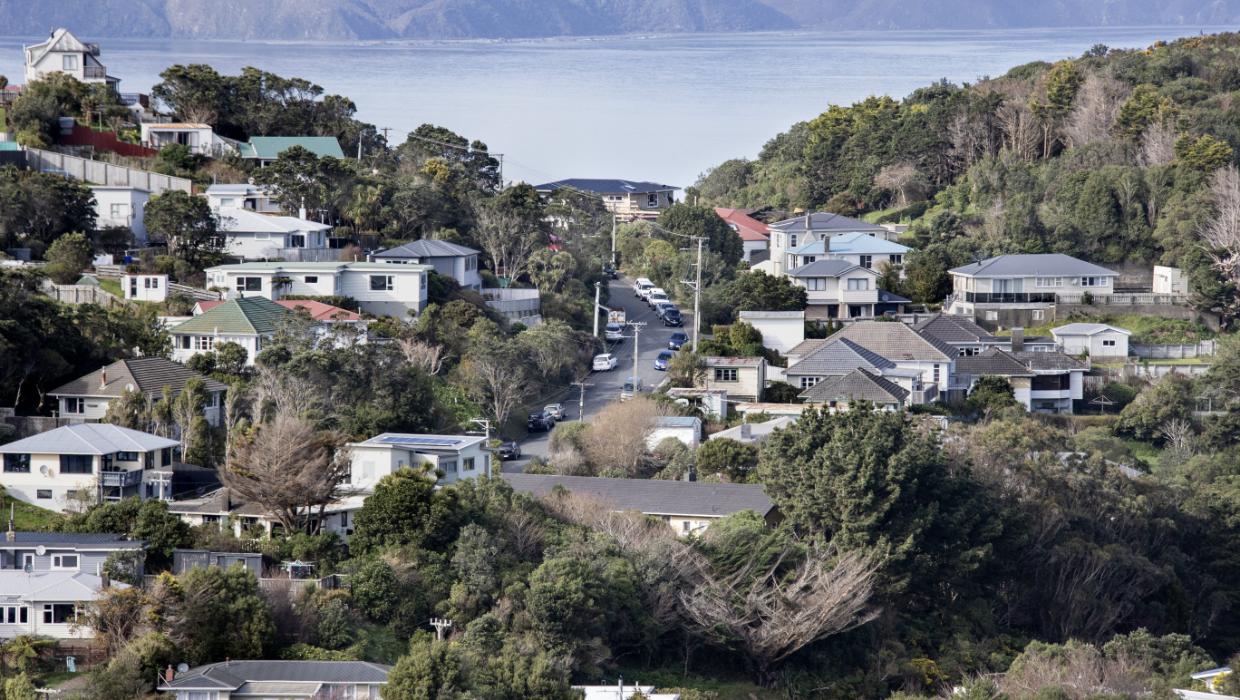Business
Rising Costs Prompt Wellington Residents to Consider Leaving

High living costs in Wellington are leading many residents to reassess their future in the capital. According to real estate agent Andrea Skews, retirees and individuals over 50 are especially concerned about whether they can continue to afford to live in the area as expenses continue to rise. Skews noted that while first-time home buyers may be less affected, older residents are increasingly contemplating relocation due to financial pressures, stating, “It’s stressful – some are wondering if they are going to be able to stay in their homes.”
The rising costs of council rates and insurance are significant factors influencing buyers’ decisions. Skews indicated that the Wellington property market may take longer to recover from its current slump, as potential buyers engage in “window shopping” rather than making immediate purchases. The current abundance of available properties has contributed to this hesitance.
In its latest Property Focus report, ANZ highlighted that while New Zealand’s housing market has begun to stabilize after a tumultuous period, Wellington is experiencing sluggish growth. The report, authored by chief economist Sharon Zollner and her colleagues, emphasized that high home ownership costs and soft rental prices continue to weigh on demand in the capital.
The report indicated that overall house prices in New Zealand have remained flat in recent months. Wellington, in particular, saw a decline in prices in September following a brief period of stability. As of now, the median home value in Wellington stands at $789,505, while Auckland has surpassed the million-dollar mark at $1,051,796.
A recent shift in interest rates is providing some relief to home buyers. After enduring several years of high rates, the costs associated with home ownership have begun to decline. In light of the anticipated drop in the Official Cash Rate (OCR), ANZ has adjusted its short-term house price outlook, forecasting a modest increase of 0.5% to 1.0% by the end of 2025, compared to previous predictions of no growth.
Nationwide, house prices have risen by 0.3% over the past year, and modest gains are expected to continue. However, the report cautioned that while average prices have stabilized, the increase is still minimal, with only a 0.3% rise from a year ago.
In Wellington, the loss of high-paying central government jobs has affected demand and rental prices. The city is also facing significant increases in both council rates and insurance costs, further diminishing the appeal of home ownership. The report noted that when home ownership becomes more expensive in Wellington than the national average, the property market tends to underperform, a trend that appears set to continue.
The report also highlighted that housing markets further from Auckland and Wellington are exhibiting stronger growth. For instance, Southland’s housing market has thrived, with prices increasing by 4% year-on-year. In contrast, areas such as Northland and Waikato have seen stable or flat prices.
Despite these challenges, there are signs of cautious optimism. Inflation in housing-related costs is easing, indicating that some of the major economic headwinds may be starting to dissipate. As of October 26, 2023, national property values increased by 0.2% for the second consecutive month, suggesting a potential market recovery. The national median value now sits at $811,662.
Within the main urban centers, Auckland experienced a slight decline of 0.2%, while Wellington and Tauranga both recorded increases of 0.2%. Other cities like Christchurch and Dunedin saw stronger growth, with increases of 0.4% and 0.7%, respectively.
Kelvin Davidson, chief property economist at Cotality NZ, noted that the stock of available listings in Wellington has decreased this year. However, the market still favors buyers due to the variety of options. He cautioned that the subdued economic climate and lack of confidence are still impacting Wellington’s housing market.
The upcoming decision from the Reserve Bank regarding the OCR could bring further changes, with forecasts suggesting a possible cut of 0.25% in November. Any potential policy announcements, such as a proposed capital gains tax by the Labour party, could also influence future market conditions.
Overall, while challenges persist, the recent uptick in property values may signal the beginning of a more favorable phase for Wellington’s housing market.
-

 World3 months ago
World3 months agoTest Your Knowledge: Take the Herald’s Afternoon Quiz Today
-

 Sports3 months ago
Sports3 months agoPM Faces Backlash from Fans During Netball Trophy Ceremony
-

 Lifestyle3 months ago
Lifestyle3 months agoDunedin Designers Win Top Award at Hokonui Fashion Event
-

 Sports3 months ago
Sports3 months agoLiam Lawson Launches New Era for Racing Bulls with Strong Start
-

 Lifestyle3 months ago
Lifestyle3 months agoDisney Fan Reveals Dress Code Tips for Park Visitors
-

 Health3 months ago
Health3 months agoWalking Faster Offers Major Health Benefits for Older Adults
-

 World3 months ago
World3 months agoCoalition Forms to Preserve Māori Wards in Hawke’s Bay
-

 Politics3 months ago
Politics3 months agoScots Rally with Humor and Music to Protest Trump’s Visit
-

 Top Stories3 months ago
Top Stories3 months agoUK and India Finalize Trade Deal to Boost Economic Ties
-

 Entertainment3 months ago
Entertainment3 months agoExperience the Excitement of ‘Chief of War’ in Oʻahu
-

 World3 months ago
World3 months agoHuntly Begins Water Pipe Flushing to Resolve Brown Water Issue
-

 Science3 months ago
Science3 months agoNew Interactive Map Reveals Wairarapa Valley’s Geological Secrets









